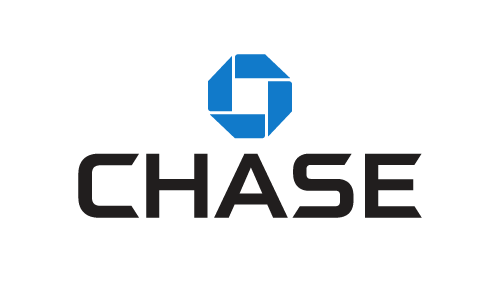
Top packaged bank accounts
What is a packaged bank account?
Packaged bank accounts are the Marmite of banking – some love 'em, some hate 'em. They usually have a monthly fee but, used right, they can save you £100s off the cost of breakdown, travel and mobile insurance. Our guide will help you check if a packaged account is right for you, and show you the top-pick accounts.
Mis-sold a packaged account? Read Reclaim packaged bank account fees to see if you can get your money back.
Packaged bank accounts best buys
-
Top packaged bank accounts
Santander, FREE £200, £17/mth – top all rounder + 1% cashback + 11mths 'free'
Nationwide, FREE £175, £18/mth – top for older travellers + 9mths 'free'
Lloyds, FREE £200, £11.50/mth – cheaper option but limited cover + 17mths 'free'
What benefits can you get with a packaged bank account?

Packaged bank accounts are current accounts that typically charge a monthly fee in exchange for various insurance benefits. What you get varies by provider and the monthly fee can sometimes be significant, so you should make sure you'll make the most of the perks before opening one.
Just like a normal current account, packaged bank accounts allow you to receive and send money, make payments, pay bills via Direct Debit and more.
Find full details of our best buys and what they offer below, but some of the account benefits usually include:
Mobile phone insurance
Travel insurance
Car breakdown cover
Gadget insurance
Other perks such as an interest-free overdraft or cashback at selected retailers, or fee-free debit card purchases abroad
Read on to see important information on whether packaged bank accounts are right for you and how to make the most of them.
Packaged account need-to-knows
Packaged bank accounts usually provide breakdown cover, mobile and travel insurance for a monthly fee. But before you get an account, read these need-to-knows – they'll help you check this type of account is right for you.
To work out if an account's worth it, check you NEED the insurance and if you can get it cheaper elsewhere
For some, travel insurance, smartphone cover and a breakdown policy for a fixed monthly fee won't be worth it. But if you're savvy enough to check policies and work out costs, they can SAVE you money. There's a simple way to work it out:
If you don't need the insurances, or can insure cheaper elsewhere, don't bother with a packaged account.
Start by multiplying the monthly cost of the account by 12 – for example, £15/month is £180/year – then see if you can buy the 'freebies' for less. To help, see our Travel Insurance, Breakdown Cover and Mobile Insurance guides. The policies included with packaged accounts are deliberately high-end, so compare whether a decent standard policy covers what you'll need.
If you'd make a saving, a packaged account might be worth it for you. If you wouldn't, paying for cover separately and plumping for a fee-free bank account could work better.
The perks are usually valid for all account holders for the same fee
With most packaged accounts you can max the value by opening it as a joint bank account. Doing it this way means you're both covered, for the same fee. So even if you won't both use the account, adding a partner can make sense – though be aware that joining finances means their credit record can affect yours.
You should still consider what policies you actually need, and whether you could get them cheaper elsewhere, but if you both travel worldwide, own cars and have smartphones, a packaged account could save you money.
A warning about joint finances
Only do it if you're in a financially trusting, caring, non-abusive relationship. Don't ever feel pressured by a partner into getting a joint account, it can sadly be a precursor to financial abuse – a form of domestic violence. For help and info, see Martin's Financial abuse & joint accounts blog.
Check insurance policies carefully for exclusions
If the account won't pay out when necessary, it's worthless, so always check you're covered for what you need before signing up.
Plus always watch out for upgrade charges. If winter sports and family cover aren't included, adding them can have hefty costs and you could find you're spending far more than you need to. Instead, choose a more suitable account to begin with, or save by insuring separately.
And once you do sign up, always make sure you check the policy documents carefully.
Always declare any pre-existing medical conditions for travel insurance or they won't be covered
Failing to declare conditions when applying for an account – and therefore, the travel insurance cover, too – may invalidate the policy. You need to contact the insurer and tell it, even if you're just having tests for a condition.
If you have a pre-existing condition, one of three things will happen:
-
You’re covered as standard
-
You’re covered, but for an additional premium
-
You’re not covered for that condition
Even where there’s an extra premium, it can still work out cheaper than standalone travel insurance, so it’s worth checking.
When will you find out if you need to pay extra?
In many cases you won’t get a clear “yes/no (and price)” until you’ve completed the insurer’s medical screening – often meaning you only find out the cost after opening the account. Nationwide FlexPlus is an exception as it refers you to Aviva to get a quote before you complete the switch, so you can decide whether to proceed.
A practical switching tip if you’re likely to be charged extra
If you think you’ll need to declare a condition (and you’re unsure what it’ll cost), set your switch date two to three weeks ahead so you’ve time to get the insurer’s decision/price. If it’s not a good deal, you can cancel the Current Account Switch Service up to seven working days before your switch date.
See our Travel insurance for pre-existing conditions guide for more info.
Thousands have been mis-sold these accounts, but you can reclaim if so
This guide's about how to pick the best packaged account. But it's worth noting that many people have had them for years without being able to use the benefits, essentially because they were mis-sold the account.
If that's you, see our Reclaim packaged account fees guide. Everyone who pays a monthly account fee should check to see if they were mis-sold.
What counts as mis-selling?
Full information can be found in our reclaim guide, but this could apply to you if you were pressured into getting a packaged bank account without being given full information (for example, you may have been told it was a requirement to getting a mortgage or overdraft), or that there were no other suitable bank accounts you could open instead. The fee may also have been added without your knowledge or consent.
If you're opening a new bank account, keep an eye out for whether there's a monthly account fee and whether there are any linked insurance products – these are usually indicators that it's a packaged bank account.
Those who feel they have been mis-sold can follow steps to reclaim their fees plus interest. This usually starts by contacting your provider. If you're then not happy with their decision, you can escalate the complaint to the Financial Ombudsmen Service.
Top-pick packaged bank accounts

There are lots of current accounts that bundle insurance and other perks, but you need to be sure the benefits are worth more to you than the monthly fee (or the eligibility hoops). The table below brings together both paid-for packaged accounts and fee-free “Premier” style accounts that include valuable extras such as travel insurance or rewards, but often have high minimum income requirements.
This isn’t a strict ranking, so use the comparison to check who’s covered (you, a joint holder, or the whole family), any age limits, and what you must do to qualify (eg, minimum pay-ins, switching requirements, or income/savings). Always double-check the policy details and exclusions so you pick the account that genuinely fits your circumstances.
Santander Edge Explorer*
FREE £200 for switchers, so 11mths of fees are covered by the switch bonus.
£17/mth fee includes...
- Worldwide family travel insurance (max age 75) includes winter sports.
- Household mobile phone(s) insurance. Excess up to £135.
- UK & European Breakdown cover for account holder(s). Cover includes roadside repair or recovery to nearest garage/home, plus home start, onward travel, replacement vehicle.
How to get it: One off £1,500 min pay in. Switch 2+ Direct Debits. To get the voucher, open the account via our links and either switch in from a non-Santander account OR make 5+ debit card payments within 30 days.
Other perks:
24/7 remote family GP access | 6% interest on up to £4,000 savings for 1yr | 1% bills cashback if they're paid by Direct Debit (max £10/mth) | 1% supermarket/travel cashback on debit card spends (max £10/mth)
Nationwide FlexPlus
FREE £175 for switchers, so 9mths of fees are covered by the switch bonus
£18/mth fee includes...
- Worldwide family travel insurance. (No max age) Includes winter sports, business and golf cover.
- Household mobile phone(s) & gadget insurance. Excess up to £100.
- UK & European Breakdown cover for account holder(s). Cover includes roadside repair or recovery to nearest garage/home, plus home start, onward travel, replacement vehicle.
How to get: Switch in 2+ Direct Debits, pay in a one-off £1,000+ and use the debit card once within 31 days.
Other perks:
6.5% variable interest on up to £200/mth for 1yr (max £84/yr interest) | Fee-free overseas spending.
£11.50/mth fee includes...
- European family travel insurance. (max age 64) Includes winter sports and golf cover.
- Mobile phone insurance for account holders only. Excess up to £125.
- Family UK Breakdown cover with recovery to nearest garage/home if closer. Excludes home start.
How to get it: Switch in 3+ Direct Debits, and spend £100+ the debit card within 35 days.
Note: £2,000/mth pay-in (or £5/mth fee).
Other perks:
Free perks eg: Disney+ for 12mths | 6.25% fixed interest on up to £400/mth for 1yr (max £161/yr interest)
Co-op Bank Everyday Extra
FREE £175 for switchers, so 9mths of fees are covered by the switch bonus.
£18/mth fee includes...
- Worldwide family travel insurance (up to age 79) includes winter sports and golf cover
- Mobile phone insurance for account holders only. Excess £75 per claim
- UK & European Breakdown cover for account holder(s). Cover includes roadside repair or recovery to nearest garage/home, plus home start, onward travel, replacement vehicle.
How to get it: One off £1,000+ pay in. 10+ debit card transactions. Switch 2+ Direct Debits.
Other perks
Linked 7% variable saver on £250/mth (max £114/yr interest)
£14/mth fee includes...
- Worldwide family travel insurance. (max age 75) Includes winter sports, wedding and golf cover.
- Household mobile phone(s) & gadget insurance. Excess up to £125.
- UK & European Breakdown cover for account holder(s). Cover includes roadside repair or recovery to nearest garage/home, plus home start, onward travel, replacement vehicle.
Eligibility: No minimum pay-in
Other perks:
6.5% fixed interest on up to £250/mth for 1yr (max £106/yr interest)
£19/mth fee includes...
- Worldwide family travel insurance. (max age 70) Includes winter sports, wedding and golf cover.
- Mobile phone insurance for account holders only. Excess up to £125.
- Family UK Breakdown cover with home start. Recovery to nearest garage/home if closer.
- Home emergency cover.
Eligibility: No minimum pay-in
Other perks:
5.5% fixed interest on up to £250/mth for 1yr (max £82 interest)
£12.50/mth fee includes...
- Worldwide family travel insurance. (max age 70) Includes winter sports cover.
- Family mobile phone insurance. Excess up to £100.
- UK Breakdown cover for account holder with recovery to nearest garage/home if closer. Excludes home start.
Eligibility: Must be a Chase current account customer + add Protect. No hard credit check. No joint accounts.
Other perks:
4.5% variable saver on up to £3m (includes 2.25% fixed bonus for 1yr) | 1% cashback on Supermarket/transport spends (max £15/mth)
High earners only.
HSBC Premier*
No fee. Account includes...
- Worldwide family travel insurance. (max age 69) Includes winter sports and business cover.
Eligibility: Must have £100k+ income paid into account or £100k+ saved/invested with HSBC.
Other perks:
Transfer cash fee-free between HSBC accounts held abroad | Family online health services with Square Health
Packaged bank account FAQs
Who can open a packaged bank account?
To get a packaged bank account you typically have to be over 18 and live in the UK. There may also be other eligibility requirements concerning the different types of insurance you're signing up for.
Many packaged bank accounts come with travel insurance, for example, which can come with exemptions for pre-existing conditions or a maximum age limit. Similarly with gadget insurance, there may be limits on what you can insure, its value and its age.
Specific providers may also ask that you don't have existing insurance policies or an existing packaged bank account when you sign up. See our best buys for more information on individual providers and our How to open a bank account guide for general info.
Will I be credit-checked when applying for a packaged account?
Banks use the same credit-scoring procedures – where they assess whether they want you as a customer – for packaged accounts as they do with normal accounts and credit cards.
So if the account includes an overdraft you'll be credit-checked in the usual way. For more info on how this works, and what lenders are looking for, see Credit Scores.
How does it work with reward payments and tax?
The personal savings allowance (PSA) means you can earn up to £1,000 from savings interest without paying tax. However these reward payments don't count as savings income for tax purposes and instead are classed as 'annual' or 'miscellaneous' payments. This means the rewards don't count towards your PSA, and they're still liable to be taxed.
If you're a non-taxpayer, you should claim back any tax taken using the R40 form. Higher and additional-rate taxpayers may need to pay more via tax returns.
Other top MSE banking guides...
Top bank switch offers: Make cash switching bank.
Need a business bank account?: For the self-employed
Basic bank accounts: For those with poor credit histories
Digital banking: Learn about app-based banks
Ethical banking: Can you do good with your bank account?
Best way to send money internationally. If sending cash abroad.























